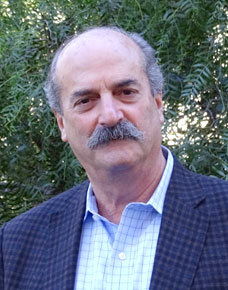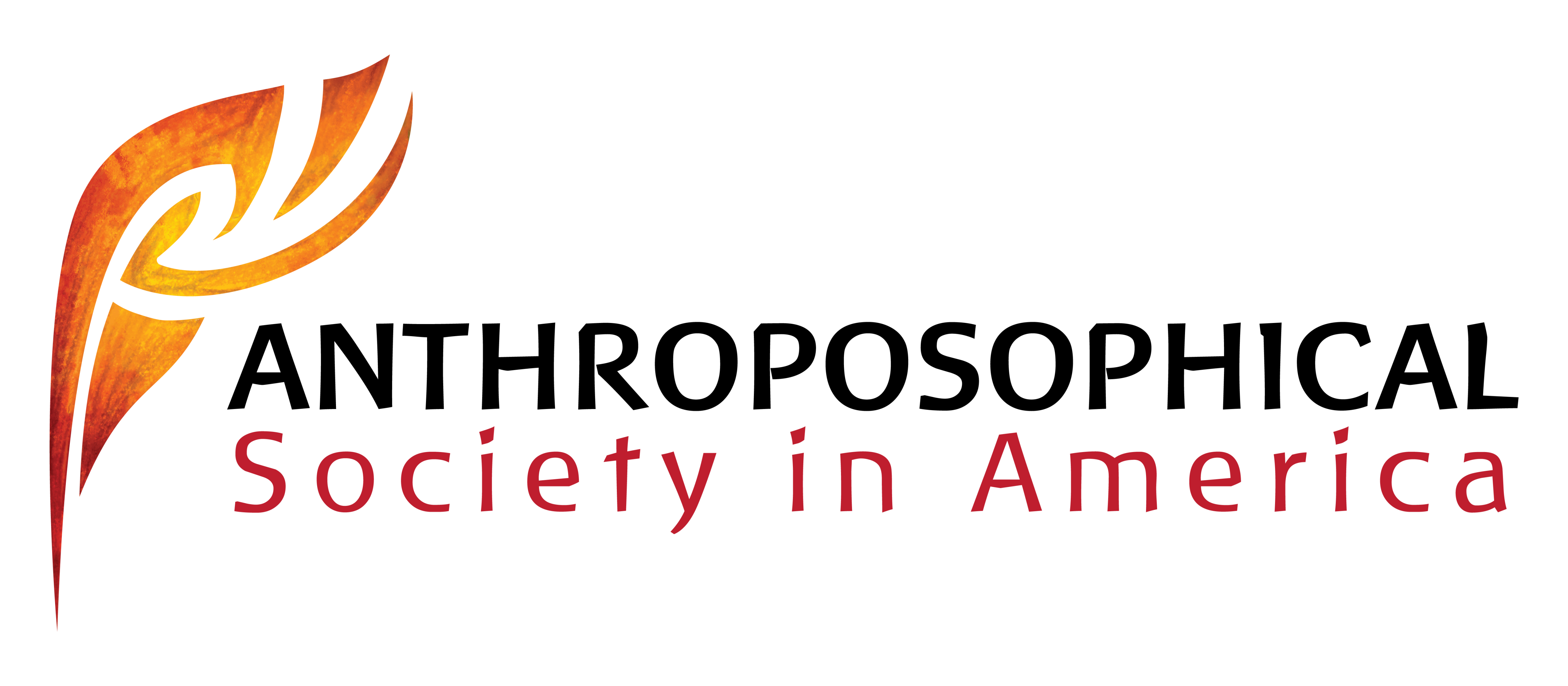From the General Secretary
July-August 2021

Dear Members & Friends,
With the grace of a broad enough shift in pandemic mood and practices, I was able to begin writing this post from the Goetheanum in Dornach, Switzerland. I was there to participate in the postponed spring meeting of the General Secretaries and Country Representatives. For the record, the limited number of us able to travel and meet in person with the leadership of the Society and School of Spiritual Science were overjoyed to actually be together, to share space, place, time, thoughts, and stories. I was missing most of my other English-speaking colleagues. We were joined virtually for several segments by other Society leaders from around the world in the English Hall now converted to a media-friendly room. Though hybrid in nature, even these portions of the meetings had a kind of grace that comes from a work community in which each individual is on a life path of inquiry drawing from the same waters. Many of us continue to learn how to navigate in digital space and still hold a sense of real meeting. It is inspiring to be reminded that spirit does not express itself in one form or another according to outer appearance, circumstance, or language spoken, but rather moves and shapes itself within each of us and through our trusting relationships.
It is clear to me that the pandemic and all of its accompanying challenges have taken a toll on leaders both at the Goetheanum and worldwide. I experienced my colleagues’ courage in their willing candor in sharing challenges, solutions, and the risks of leadership itself. The issues are similar, despite differences in how each of us grapples with and understands them, and all have generated much debate, consternation, uncertainty, and conflict. Vaccinations, mask rules, the interpretations of freedom, racism, are but a few of the most visible public issues. What does it mean for leadership to write a statement? Whose position is it? How do we address the criticism in the media with a new awareness of the powers of social media? And there are even deeper questions about the forces at work in humanity at this time. One result was the paper written by Peter Selg, Constanza Kaliks, Justus Wittich, and Gerald Häfner titled, “Anthroposophy and Racism,” available now on the Goetheanum website. Despite the divergence of experience in our respective countries, patient and interested listening and shared insights brought about a kind of recognition of what the future is asking of us and a renewal of purpose in staying present on a future-bearing course.
As part of the meeting, hard questions were asked and responded to such as: How are we as cosmopolitan Society looking at the changing patterns of diminishing membership? What is needed by way of invitation and interest to assure the future of the Society, and thus the future of the School for Spiritual Science? We sometimes forget that the General Anthroposophical Society is an important gateway to an anthroposophical path of self-development. But is the gateway visible and inviting enough that individuals would choose to walk through it? And what is the nature of the experience once that choice is made? As a US Society we have looked at these questions squarely over at least the last five years and have witnessed the benefit to a growing number of members in doing so. Goetheanum Leadership is looking at how the Society is presented on its website and knows it needs to work in partnership with the Country Societies. This recognition of a need for outward-facing change is another indicator of a broader shift towards becoming a more world conscious Society and having that world more present at the Goetheanum itself.
This late spring and summer I have spent quite a bit of time with numerous organizations and branches. The pandemic has affected their lives in ways that we all can recognize. Farmers had unusual production demands put on them as the need for more localized and safe food arose—and while the pandemic has raged, so has the climate expressed in extremes of storms and drought. Teachers made it through the year because they work so deeply out of service, but the needed innovation and adjustments online or outdoors took a toll on their energy. But what has struck me about these individuals and in some cases their organizations is how much the pandemic stress has more recently brought focus to the relational and economic aspects of their work. My sense is that in the immediacy of the pandemic, a significant focus was demanded of the self: self-care, wrestling with seemingly competing narratives, and at each turn meeting one’s own strengths and shadows, all while just trying to get done what was expected to meet the needs of the children or the marketplace. Devotion to vocation where that was possible, surviving and thriving against some strong forces, individual and cultural, is a spiritual deed. Even as systemic issues from race to economic inequity remain painfully present, some of the more proximate social or economic tensions that may have been set aside simply to keep going have come to the fore and are demanding attention.
These aspects are signs of the emerging aftermath of the pandemic. I say emerging because, regardless of how anyone of us views the pandemic times (and there is a multiplicity of views) it is not clear how we would or can define an “after” yet. The word “aftermath” is one of those linguistic gems that in general usage applies pejoratively to the consequences of significant events, but originally it named the new growth of grasses that comes after mowing the field. So the double and seemingly opposite meanings point to the reality of where we are at this moment in time. How do we understand the consequences, what are we learning, and what are the rising opportunities to call forth a future that is inviting the next generations?
Rudolf Steiner has much to say about ethical individualism and what is held in that phrase is vitally important for this aftermath moment. The pandemic forced a certain degree of isolation and a heightened self-awareness. Washing hands started to feel like wringing hands, literally and figuratively. And the generally undefined, self-regulated physical boundaries between people from public transportation to personal intimacy became newly suffused with potential risk. For myself, in making decisions to travel or meet or engage in anything social, I inevitably found myself meeting sometimes unexpected, sometimes surprising questions from within, questions infused with all sorts of biases, assumptions, worries, and considerations of responsibility. In some ways this has been a pandemic engendered gift as my sense of who I am as an individual was strengthened. But what of the ethical part? Each of us as individuals has to find an ethical way of being in the company of other individuals in a way that leaves them free, respects inner freedom, but finds a way to form agreements on how to be together. Whatever those agreements, they need to be created anew, negotiated, and accountably functional. This is the gift within the aftermath. The possibility of new growth, re-enlivening our social world in a way that takes into account spiritual freedom and an ability to live equitably into the agreements we create and to acknowledge our own ethical shortcomings. Doing so will put responsibility where it belongs, in the ethical exercise of freedom for everyone’s spirits.
I look forward to rejoining more of my General Secretary and Country Representatives in person in early November. It will make it possible not only to deepen our personal and Society relationships, but also continue to build what I have come to call the spiritual internet. We will remain in the aftermath and I trust, given the intention of becoming more open and of greater service as a worldwide Society, will regrow even stronger.
John Bloom
john.bloom@anthroposophy.org

I very much appreciate the content of the contribution of our General Secretary!
Thank you indeed!
This word IN DEED has a new and important meaning for me. How much of it do I really ‘live’ and use in my daily life! Can I will myself to do better!
For all the changes in the world, necessary for spiritual advancement and for raising awareness about the works of spirit, the Anthroposophists should be in the forefront ennobled by the quality needed now the most. I speak of Courage! Courage is not only the major requirement for the Michaelic age but it is the highest vibration we can reach when we put aside the mundane fears and dedicate ourselves to the service of humanity. I will not live in fear. I will not wear a mask. I will do my own research. I will continue studying medical anthroposophy. I will find the antidotes for the fear that befell my brothers. God is with us!